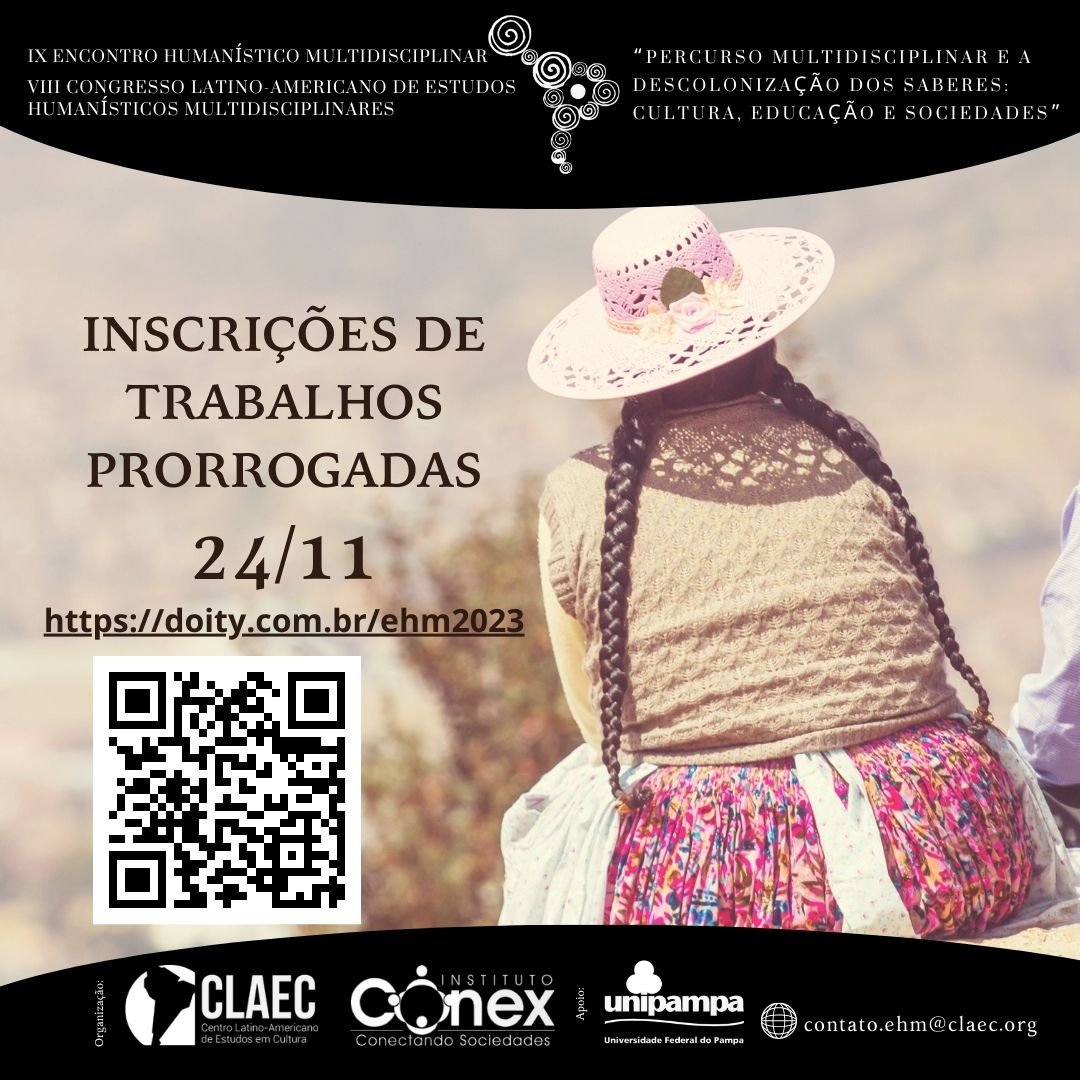Drando. Victor Hugo Nedel Oliveira (PUC-RS)
Dra. Miriam Pires Correa de Lacerda (LaSalle)
RESUMO
Estudar as juventudes contemporâneas e suas relações com as mais diferentes temáticas e os diferentes campos do conhecimento faz-se oportuno em uma sociedade que, cada vez mais, subestima as capacidades destes sujeitos. O principal objetivo do Grupo de Trabalho é estabelecer discussões sobre as Culturas Juvenis contemporâneas e suas interfaces com a Educação, Sociologia e Psicologia socializando pesquisas científicas, reflexões e experiências, articuladas a diferentes contextos. Como aporte teórico, recorre-se aos autores referências no campo das Juventudes, quais sejam: José Machado Pais; Carles Feixa; Juarez Dayrell; Paulo Carrano; Jesus Martín-Barbero; Rossana Reguillo; Mário Margulis; Néstor Garcia Canclini; entre outros. Há o entendimento, de acordo com a leitura de Feixa (2004), de que as culturas juvenis são as formas pelas quais os jovens estabelecem relações no coletivo, em espaços intersticiais à vida institucional, ou seja, o conceito de coletividade é presente em tais discussões. Ainda, em consonância com Dayrell e Carrano (2014), há que se esclarecer que “as práticas culturais juvenis não são homogêneas. As configurações sociais em torno das identidades culturais não se constituem abstratamente, mas se orientam conforme os objetivos que as coletividades juvenis são capazes de processar num contexto de múltiplas influências externas e de interesses produzidos no interior de cada agrupamento específico.” São contempladas pesquisas que articulem as temáticas das juventudes com: a escola, a cidade, a cultura, as sociabilidades, o meio ambiente, o cotidiano, o trabalho, a transição para a vida adulta, as políticas públicas, a vida rural, o ensino superior, as questões de gênero, as migrações, a violência e outros temas pertinentes. Em relação às diretrizes que orientam os trabalhos contemplados no GT, pesquisas e relatos que apresentem discussões teóricas; discussões teórico-analíticas; resultados de pesquisa e relatos de experiência serão apreciados. Neste sentido, é ampla a margem de possibilidades de trabalhos a serem inscritos no GT Juventudes e Educação, possibilitando o alargamento destas discussões as quais configuram-se como importantes não apenas para o campo das juventudes, mas também para a academia e para a sociedade como um todo.
Palavras-Chave: Juventudes; Jovens; Educação
Youth and Education
ABSTRACT
Studying contemporary youth and their relationships with the most different themes and different fields of knowledge is timely in a society that increasingly underestimates the abilities of these subjects. The main objective of the Working Group is to establish discussions on contemporary Youth Cultures and their interfaces with Education, Sociology and Psychology by socializing scientific research, reflections and experiences, articulated to different contexts. As a theoretical contribution, the authors are referred to in the field of Youth, namely: José Machado Pais; Carles Feixa; Juarez Dayrell; Paulo Carrano; Jesus Martín-Barbero; Rossana Reguillo; Mario Margulis; Néstor Garcia Canclini; among others. There is an understanding, according to Feixa (2004), that youth cultures are the ways in which young people establish relationships in the collective, in interstitial spaces to institutional life, that is, the concept of collectivity is present in such discussions. Still, according to Dayrell and Carrano (2014), it must be clarified that “youth cultural practices are not homogeneous. The social configurations around cultural identities do not constitute abstractly, but are guided by the objectives that the youth collectivities are able to process in a context of multiple external influences and interests produced within each specific grouping. “Research is contemplated to articulate the themes of youth with: school, city, culture, sociability, environment, daily life, work, transition to adult life, public policies, rural life, higher education, issues of gender, migration, violence and other relevant issues. In relation to the guidelines that guide the work contemplated in the WG, research and reports that present theoretical discussions; theoretical-analytical discussions; search results and experience reports will be appreciated. In this sense, there is a wide range of possibilities for work to be registered in the Youth and Education WG, making it possible to broaden these discussions, which are important not only for the youth field, but also for the academy and for society as a whole. one all.
Keyword: Youth; Education
